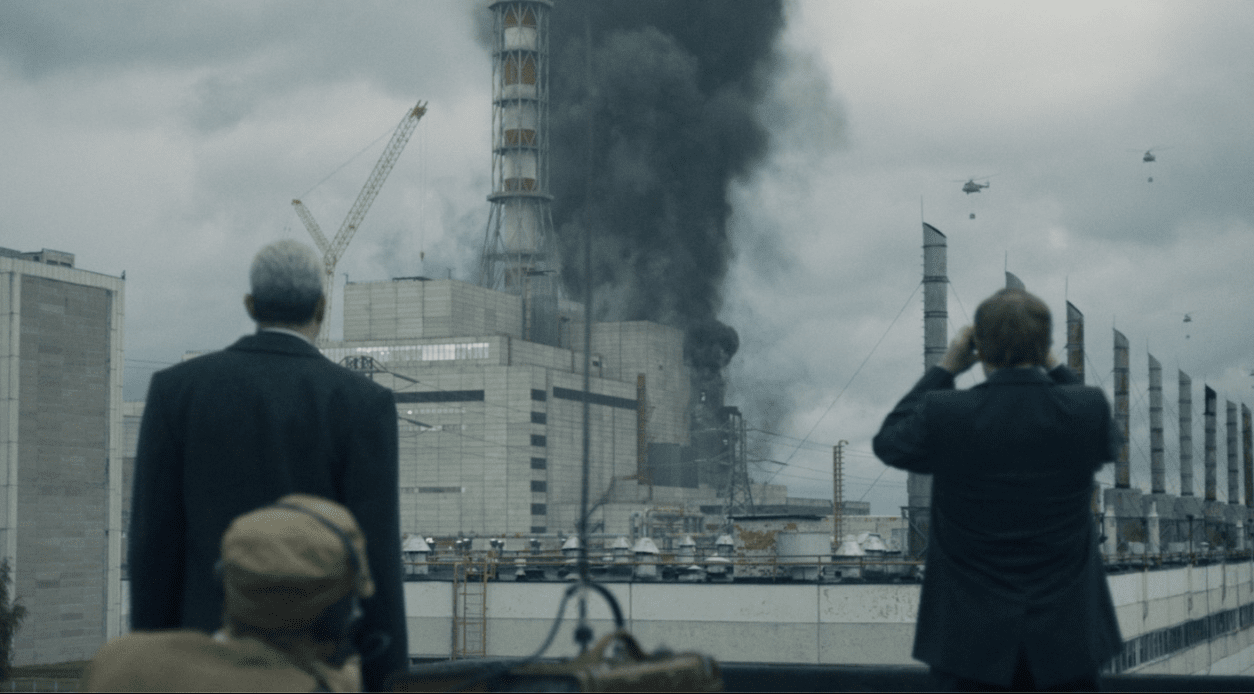We all know about Chernobyl. I was probably only four or five years old when the tragedy befell the nuclear power plant in the Soviet Union. Yet, even at a young age I knew this was something terrible. Since then, Chernobyl has become synonymous with horror and apocalypse — reinforced through documentaries, news reports, and in-poor-taste horror films. (I highly recommend you check out Anthony Bourdain’s No Reservations where he explored the fallout area in 2011, it is absolutely chilling).
Yet despite this incident being such an important moment in history, I’m not sure many of us have truly grasped the sheer gravity of the situation. Not just of the fallout, but the reasons that this tragedy happened — the human element.
That’s what HBO’s latest miniseries explores this in stark, unflinching fashion. We’re given a look inside the plant, the adjoining towns, and political meeting rooms. We see the shockingly immediate physical effects the nuclear explosion has on those trying to contain the issue. Skin is immediately singed, vomit and blood explode from bodies without warning, and men slowly die in front of your eyes. It’s worse than any horror film since this actually happened to real people.
However, the real horror of Chernobyl is how pride, fear, arrogance, and politics clouded the minds of men causing them to make foolish move after foolish move. Men refuse to be wrong and lead others to their death. They wait to make decisions as radiation slowly poisons the area. It’s horrifying.
However, there’s one scene that trumps them all. In a crowded bunker, an aged Soviet official gives a speech saying that their political system, and the people’s adherence to it will lift them up and save them from this crisis. But … to protect the “Soviet way” and the prestige of their nuclear program — no one is allowed to evacuate, phone lines will be cut, and the secret will stay contained. This speech, performed masterfully by veteran actor Donald Sumpter (aka Maester Luwin on Game of Thrones) strikes you to the core of your soul. It’s astonishing to hear a man willing to sacrifice so many lives in order to protect a political idea.
As a show, Chernobyl does something that’s wildly difficult to do — take a sweeping catastrophic event, and turn it into a claustrophobic horror film and human drama at the same time (particularly in episode one). It’s something “disaster” films try to do, and usually fall flat on their face doing. The credit for the show’s success goes to writer/creator Craig Mazin (a Jersey guy). Mazin, known mostly as a comedic writer, makes every line impactful and tragic, and makes his story less about the event and more about the people. Meanwhile, director Johan Renck is able to get some great physical performances from the cast — especially facial reactions. These reactions drive the horror home. Renck’s direction balances the epic and the intimate, and it makes for an emotional hour of television.
To tangent for a second, watching Chernobyl feels like a cautionary tale, or just an allegory for our current times. Maybe I’m reading too much into it. However, after watching the aforementioned speech by Donald Sumpter’s character you can’t help but draw parallels between this incident and the climate change crisis impacting the world — where men are making decisions to line pockets and protect “lofty” political ideas instead of protecting humanity. This parallel, to this writer, spoke volumes and makes the emotion of Chernobyl even that greater.
HBO’s latest miniseries is not an easy watch. In fact, you might need a few breaks in between watching. However, this is a fantastically shot, written, and performed series that is a slap in the face to everyone who forgets how man can truly destroy itself.
Chernobyl airs Monday nights on HBO.



Excited to get into this one.
Climate change? Yeah you’re reading too much into it. 🤣